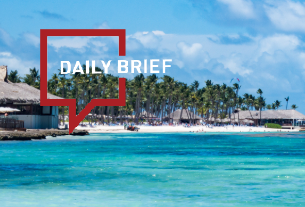Ancillary revenue guru IdeaWorks has taken a detailed look at six airlines’ post-booking email marketing efforts and suggests that “simplicity can be a virtue”.
Last December it made one-way seat-only bookings with six airlines – Aer Lingus, AirAsia, easyJet,Ryanair, Spirit and Vueling. The bookings were for departures from 31 to 43 days out and it opted in to receive promotional emails (where opting in was in fact optional and not, as is often the case, part of the terms and conditions of travel).
It sat back, waited for the emails which followed and analysed the form and content of the messages.
The analysis showed that there is a big difference in approach – Air Asia only sent three emails with a total of 800 words; easyJet hammered the inbox with 12 emails, promoting 11 different ancillary products and running to 5,500 words.
“It’s not nearly the 587,000 plus words you will find in War and Peace, but it’s a heavy meal that might discourage most from savoring the individual promotional messages about trip insurance and assigned seating.”
Ryanair gets the IdeaWorks seal of approval by “offering the perfect balance.” Its look and feel works well on a mobile screen, the emails are short and use bullet points to break up the text, images load quickly and the content is relevant, such as a link to the correct destination page on its Into the Blueblog.
Airlines are always talking about personalization, but some of the “misfires” identified during this snapshot suggests that there is still some way to go. IdeaWorks noted “parking in Rome was oddly promoted for an itinerary which didn’t include Italy [and] the most head-scratching was a trip to Hamburg, Germany, which produced an email offering the Hampton Inn & Suites in Buffalo, New York as a suggested option.”
IdeaWorks politely declines to name the airline selling hotels in the US to someone flying to Germany, but looking at the detailed breakdown elsewhere in the report, it was Vueling.
By booking seat-only flights with no extras, IdeaWorks was able to frame its findings in the context of how emails are used to sell ancillary revenues. Hotels and car-hire were the most promoted product across the six airlines.
It is perhaps a surprise that the big revenue earners for airlines – bags and seats – are not promoted as actively as car hire and hotels which are less lucrative. IdeaWorks suggests that this “emphasizes the desire by airlines to become one stop travel shops…attempting to capture business from online travel agents.”
A caveat to the research – acknowledged by the authors – is that it is unable to make any comments about open rates and conversion rates of the airlines’ email marketing efforts. Nonetheless its detailed observation of six airlines’ approach to email marketing allows it to make the following tips.
Read original article




